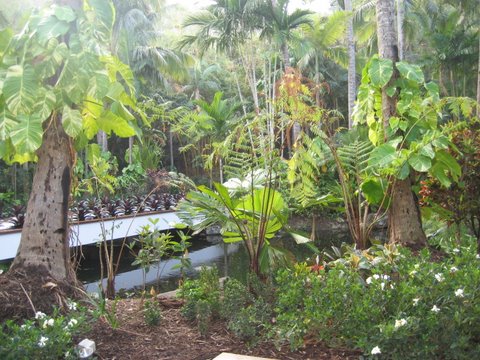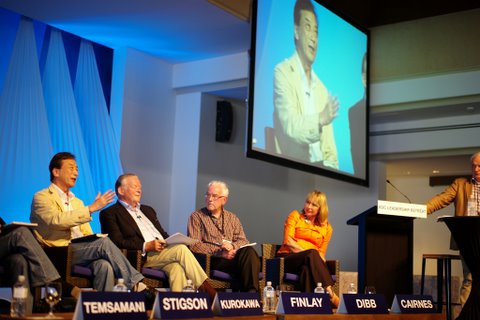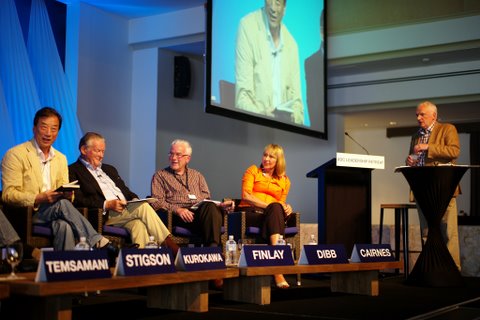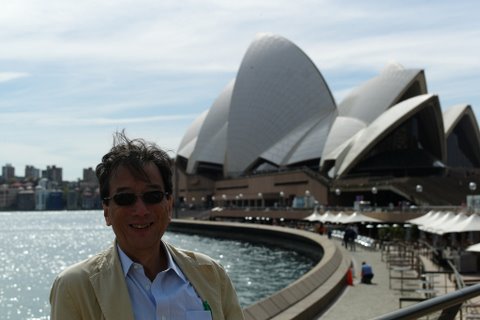The World Economic Forum (WEF) is well-known to visitors to this blog. I think that people who visit this web site can get a sense of world events and new directions the world is moving in. This Forum could be characterized as a multilevel network which links the world together horizontally, and it is a place for those individuals who are international leaders and have themselves been characterized as a “super class” in a book of the same name.
A conference was held last week in Dalian which has been dubbed the “Summer Davos” (a name that brings to mind Davos which is held in the winter). More than a hundred attended from Japan, but my schedule did not permit me to make it. The WEF Asian-Pacific Summit was held about a month ago in Indonesia, and I was unable to make that conference either. I recommend the WEF site to everyone who wants to keep tabs on our rapidly changing world whose future is almost impossible to predict.
In light of these activities, Professor Klaus Schwab, who is the prime mover behind the WEF, has launched the new Global Shapers Community. The aim is to broaden the arena for young activists who are striving to invigorate society. William H. Saito, with whom I worked to launch Impact Japan in Japan, has been appointed as the Japanese Curator. Impact Japan has also become a contact point.
Mr. Saito arrived back in Japan in the early hours of Saturday the 17th (actually he landed a bit after 5:00 in the morning on the day of the gathering). Prof. Schwab, who had arrived in Japan the previous day, met with a gathering of approximately 30 youths in their 20s. The Global Shapers Community was thus launched in the course of the subsequent 90-minute meeting. Everyone, with the exception of 1, is someone who is working towards socially significant goals, setting up new organizations and engaging in entrepreneurial activities. They are a hard-working and energetic group.
I beseech adults before they start to say “the young people of today are so . . .” to think about these youths who are actively engaged and to offer them support. There are also a number of youths based overseas. Mr. Atsuyoshi Saisho and Mr. Yusuke Matsuda (in Japanese) who I have talked about previously in this blog also participated. All of them are setting high goals and aggressively tackling them even while running into obstacles and dealing with major setbacks.
This network of youthful activists which expands beyond borders should surely invigorate Japan.







